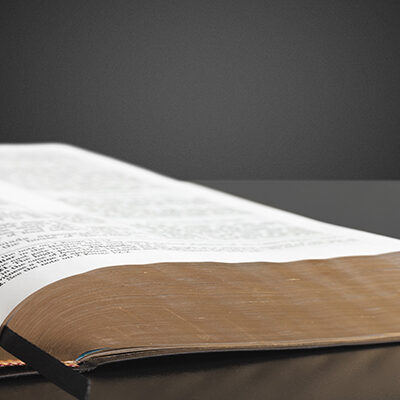If someone were to ask if you kept Christmas and you said no, they would assume that you are not a worshipper of Christ. You could explain that you really are a deep and true worshipper of Jesus Christ. You may disagree on dates and some customs, but love Jesus as well.
We happen to worship Him on correct dates as assigned by the Bible. Christ was not born on December 25. That date comes from pagan Rome and sun worship. Scholars do not doubt this fact. The Romans worshipped the pagan god Saturnalia on December 25, as the sun was declining. It is simply a date based on pagan sun worship to encourage the sun to come back.
Jesus’ actual birthdate is not mentioned in the Bible. The December 25 date was chosen to appease the Roman population into accepting Christianity. You can tell friends that you worship Christ and honor His birth but not on an incorrect date using pagan customs. Remember, the Bible instructs us not to try to worship the true God using the practices that heathens use when worshipping their gods (Jeremiah 10:2-5). Practically all Christmas traditions and customs can be traced back to paganism from various nations.
Some feel the date is irrelevant. But do you believe that God wants false dates and customs associated with the true worship of His Son? As a good historian, Luke provides vital information and an orderly account of the time period surrounding Christ’s birth.
First, in a long section from Luke 1:5 to 2:8, Zachariah, the priest, was of the priestly course of Abia or Abijah which began June 18 and extended until July 1 (see 1 Chronicles 24:10). The courses of priests start at the Passover and the eight course would be about three and a half months later. This would be in the summer.
After he returned home, his elderly wife Elizabeth became pregnant and hid herself 5 months. His son John was born six months before Jesus. This information allows us to calculate Elizabeth’s sixth month as December, during which Mary also conceived Jesus. Note Luke 1:26-38. This means Jesus Christ would have been born in the fall. The Bible has spring and fall Holy Days to celebrate Christ’s first and second coming.
A second point is that the sheep were outside the barn at night when Christ was born inside, in the manger. It would be too cold to have sheep outside at night in the fields in the winter. See Luke 2:8. It is clear Christ was not born on December 25 on a cold winter night; that date was a pagan influenced political choice. Let’s worship Christ in spirit and truth.
The early Christian Church did not celebrate Christmas! The Bible does not even mention Christmas. Early Christians did celebrate God’s Holy Days. The Encyclopedia Britannica, 11th Edition states that even as late as AD 245 the Catholic theologian, Origen, still held that keeping Christmas was sinful.
God knew that pagan compromises would be detrimental to any society. Yehovah, or Jehovah (God), told Israel in Deuteronomy 12:30-31 not to inquire about the pagan rites and customs because He knew it would be spiritually debilitating for them. It would obviously separate them from God’s blessings. They, like us, needed His protection and blessings.
Paganism leads to child sacrifice among other abhorrent practices. As our country becomes much more secular we have seen millions of babies aborted on the altar of parents’ convenience, mainly to avoid the costs and responsiblities of raising a child. The apostle Paul said that pagan rites are under demonic influences (read I Corinthians 10:20).
Christmas is demonstrably of pagan origin, both the date — in the dark winter, chosen to worship the sun god — and other traditions. The Bible in no way intimates that Christ was born in the winter. Read both Luke 1:8 and Jeremiah 10:3-4.
People are led to expect peace and familial love and harmony – not to mention wonderful gifts. When these experiences prove so much less than that ideal, it leads to greater levels of depression and despair. Expectations are so high it is understandable that so many become desperate and disillusioned during the season.
The extreme materialism which is so hyped during this season is not good for people. It violates the principles behind the tenth Commandment regarding coveting. Christmas does not have spiritual depth. Appealing mainly to man’s greedy nature, Christmas usually brings more identity theft, domestic violence, counterfeiting, shoplifting, scams, vehicle theft, robbery, drunk driving, rape, sexual assault, and burglaries than any other time of the year!
If America truly has religious freedom, people have a right to be wrong. Otherwise, religious freedom does not exist. We know they are wrong theologically and yet we can say they have the right to be wrong. They mean well. Charity for the disadvantaged is a good work whenever it is done. Everyone has the right to express their Christian beliefs — even in the public square! However, it is especially hard to support the many who wish to celebrate the winter solstice or Christmas holiday but forbid any display of Christ, the Ten Commandments, or scriptural passages.
Rejection of Christianity is one of the most negative trends in our society. The Bible emphatically supports the celebration of Christ’s death (New Testament Passover), His resurrection (Days of Unleavened Bread), and His second coming (Feast of Trumpets) to bring His rulership to the planet and with it, paradise (Fall Holy Days, culminating in the Feast of Tabernacles and Last Great Day). But we do not support the secularists, agnostics and Earth worshippers who want to keep the Christmas holiday but eliminate the name and even the thought of Christ and His birth in a manger in Bethlehem. American Christians have the right to celebrate as they believe (errors and all).
The British military was the super power of 1776, and the American Revolution was in great jeopardy. George Washington’s army was being defeated repeatedly by the professional and well equipped forces of the British Empire. The Americans were easily defeated in Manhattan and faced almost certain destruction and/or capture. Their nighttime escape from Manhattan Island was enabled by a Dunkirk-like fog that tremendously reduced British visibility. Small boats secretly rescued the American army that night before the British could finish them off the next morning. Miraculously, the fog and the wind prohibited the British naval blockade from stopping their escape into New Jersey.
Our army was then pushed further down into New Jersey by a flurry of defeats and withdrawals across the Delaware River. Then came winter. Public support for the revolution was fading. People began to think the British Empire was unbeatable. Washington was desperate for an event to turn public opinion. He needed a victory against the superior and better equipped professional military forces.
The American colonists did not keep Christmas. Many of the colonies outlawed Christmas in those days. They considered it too rowdy and unbiblical. Washington knew that the British, and especially Hessian soldiers, would be drunk or hungover after their Christmas celebrations. He crossed the frozen Delaware River, surprised the enemy and won an easy victory. This same victory turned public opinion back toward the Revolution, thereby gaining support as well as much needed volunteers and supplies. The Christmas victory at Trenton, New Jersey was a vital key to American Independence. You could say that not keeping Christmas might have saved the American revolution!





